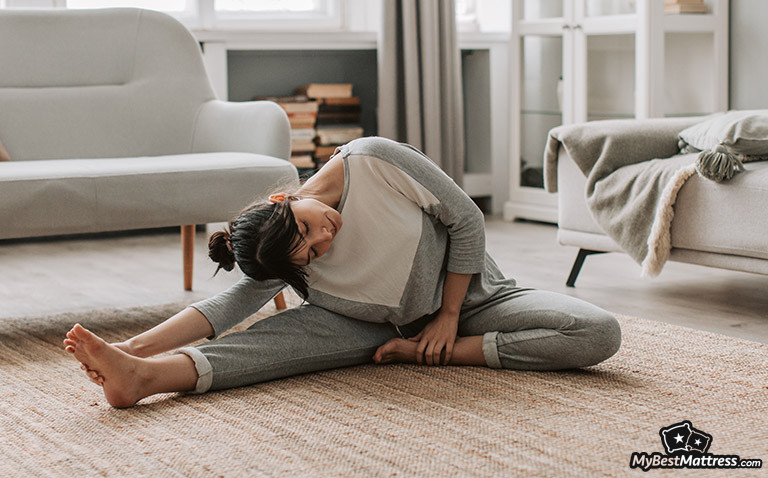
Many of us have stayed up all night studying before an exam or tried placing our textbooks under our pillows - I know I sure have. In moments like this one thought is inevitable “I wish I could learn in my sleep”. Well, it might not be completely impossible, as the possibility of sleep learning has been a much-researched topic for many years now.
Even though the concept of learning in your sleep seems almost Sci-Fi-Esque, with images of people sleeping hooked up to wires in pods popping into our heads (I’m sure I’m not the only one with that visual), successfully mixing quality sleep and learning is actually quite achievable.
So, how does sleep learning work, and is it really possible for any average person? How much can you learn in your sleep? What do you need to achieve it? All of these questions are answered and more, right here in one article.
Table of Contents
- 1. How Much Are Sleep And Learning Related?
- 2. Science Behind Learning While Sleeping
- 3. What Do You Need for Sleep Learning?
- 3.1. Time to study in peace
- 3.2. Good sleep - good learning
- 3.3. Triggers of your choice
- 4. What you can learn in your sleep
- 5. Things You Might Have Not Known About Sleep
- 6. Conclusions
How Much Are Sleep And Learning Related?
Sleep, even though it is one of the most vital biological functions, is still to be researched. Despite the significant progress made over the last few years, its function and exact processes are still mostly a mystery.
The facts we do know include that sleep is when we regain the energy[1] we have used up throughout the day, allows the regeneration of cells and tissues[2], and possibly even helps the brain flush out the toxins[3] that have accumulated throughout the day.
Needless to say, we need sleep to live healthy and fulfilling lives. But what happens when we don't get the amount of sleep we need?
We all know that groggy feeling after a sleepless night. However, sleepiness and excessive yawning aren't the only side effects of sleep deprivation.
It’s no wonder that our sleep has a great effect on our academic performance. Whether it’s stated in a published study or we know from experience ourselves - working, studying, or recalling information is much more difficult when you haven’t had a good night’s rest.
Several researchers have shown that lack of sleep has an especially notable effect on our memory. Many studies[4] support the hypothesis that sleep acts as a delay to interferences, allowing memories to be maintained for longer. In other words, if you get enough sleep, you can significantly lower the chances of your memories being replaced by new information or interference.
This in turn makes learning much easier, as you can retain more information for a longer period of time.
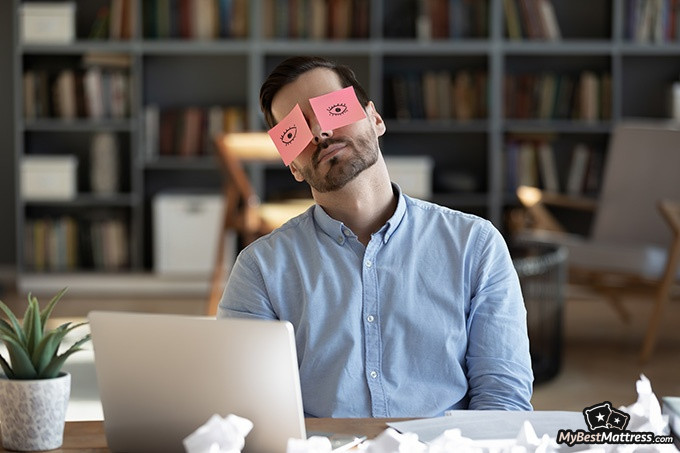
When it comes to the process of learning itself, sleep influences both the process and the aftermath of learning. Studies have shown that lack of sleep can make you feel slightly drunk, with reaction time and the ability to concentrate being notably impaired.
Because of this, even if you get enough sleep after a study session, if you weren’t well-rested before, your chances of retaining most of the information are very slim.
This leads me to the following point. We can try cramming throughout the night or studying in the morning, however, one of the best ways to remember what you've learned is “sleeping on it”. Research has found that sleeping immediately after studying (no more than a 3-hour time window) can help retain more information than sleeping much later after studying (a 10 hour time window or more).
In fact, this shows the importance of the amount of interference to be reduced, not the amount of time spent reducing said interference.
But what would happen if no time was left for interference to occur at all? What if we were learning while we slept?
Science Behind Learning While Sleeping
Sleep learning has fascinated us for decades. Those who grew up during the late 90s and early 00s most likely remember the iconic cartoon “Dexter’s Laboratory". In one episode Dexter invents a machine that was supposed to help him learn French by playing a French language CD while he slept.
To our amusement and Dexter’s despair, the CD got stuck and played only one phrase over and over again through the night, resulting in Dexter only being able to say “Omelette du Fromage” the next day and nothing else.
However comical the following hijinks were, the actual process of sleep learning depicted was not that far from our reality. Audio recordings have been shown to help you learn in your sleep.
And they say cartoons don’t teach us anything!
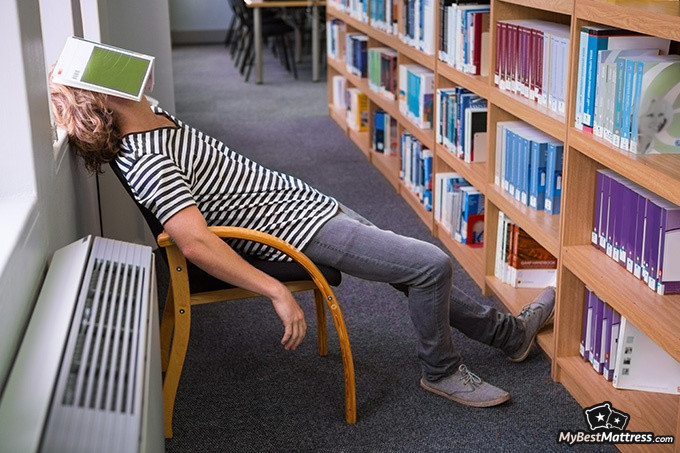
That being said, to answer the question “can you learn in your sleep?” we shall dive deeper into the world of sleep science, because believe it or not, the real-life concept of sleep learning is a little bit different from the animated version.
The idea that you can learn while you sleep has been intriguing us for decades now. One of the most prominent inventions was the Psychophone, especially popular in the 1930s. Intended to subliminally affect the person’s thoughts and emotions, the Psychophone played encouraging messages while the user slept, such as “I am losing weight” and “I am confident”.
However, the 1950s marked the end of the Psychophone and sleep learning as an actual possibility, as scientists began to use EEG to study sleeping brain waves. The results were unanimous - if users did learn something at night with the Psychophone, it was only because the audio recording had woken them up.
Even though learning in your sleep has since been considered a part of pseudoscience, recent years have seen a resurgence in sleep learning research. One of the most important findings was that our brain isn't completely idle while we slumber.
An important thing to note is that our brain works in two phases. According to Scott Cairney, a researcher at the University of York, we learn while we are awake, and refine the new information in our sleep.
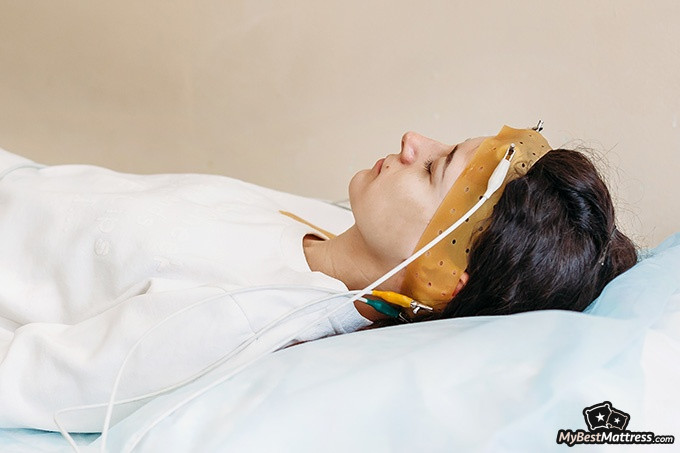
These phases were further researched in a study lead by Cairney and his partner Bernhard Staresina, who works at the University of Birmingham.
During their research, 46 participants were instructed to learn associations between words and pictures of objects or scenes. Afterward, half of the group stayed awake, while the rest took a 90-minute nap. To the asleep group, audio of some of the words used for the associations was played.
Once the 90 minutes were over, the researchers found that out of all of the participants, those who had audio cues played to them in their sleep recalled the word-picture associations the best, followed by the rest of the sleeping group and those who stayed awake.
This showed that external stimuli can help increase memory consolidation during sleep, which, in turn, helps you learn more and better.
But can you learn in your sleep something completely new? According to some scientists, yes!
However, not the exact way demonstrated by Dexter.
A study conducted in 2012 found that new memories can in fact be formed while sleeping. The catch is that these memories are implicit, or to put in other words, unconscious. This is one of the most basic forms of learning, but learning nonetheless.

The Israeli researchers leading the study found that people can learn to associate sounds and smells in their sleep. Subjects were exposed to a fishy stench while listening to a specific tone in their sleep. Once awake, they instinctively held their breath upon hearing the tone.
In a later study, conducted in 2019 and published in Current Biology, researchers played made-up words with their supposed meaning, such as “guga” for elephant, to sleeping subjects. Once awake, the participants were able to pick out the right “translation” for the made-up words in a multiple-choice test.
Even though this proved that it is possible to form new memories while we sleep, the amount of power needed to learn complex concepts and form explicit (or conscious) memories is not possible for a sleeping brain, as it requires more power and energy than available to a sleeping mind.
With all of these findings in mind, it is safe to say that sleep learning is not just part of fiction and cartoons anymore, even if you won’t be able to master a new skill overnight.
So, can you replicate these results at home? Let’s see what you might need.
What Do You Need for Sleep Learning?
Alright. You’ve decided that you are gonna give sleep learning a try. There’s an exam tomorrow and you really want this to work. Here are some tips that can help you achieve significant results while you sleep.
Time to study in peace
All of the studies mentioned in this article point out one very important factor that leads to notable results.
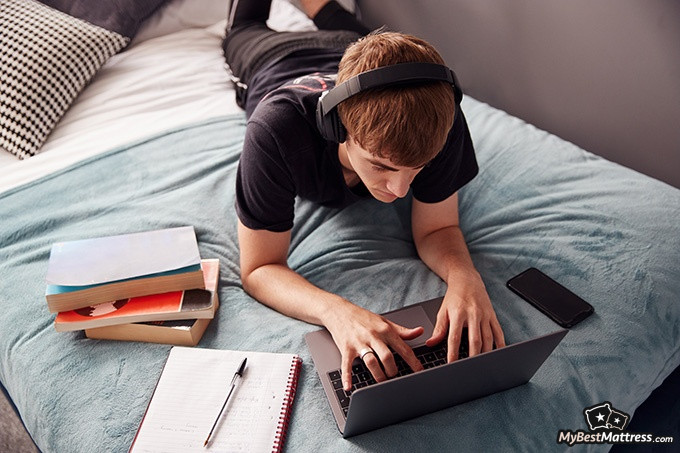
Participants showed the best information recollection after sleeping immediately after learning said information. According to scientists, the golden time window is up to 3 hours before sleeping.
This allowed minimal distractions to occur before learning and refining, making sure as much of the learned material as possible was conserved by the resting brain.
If you don’t want or don’t have the opportunity to study right before sleep, a still effective alternative is revising right before bedtime, even if the main studying session wasn’t immediately before sleeping.
The key is making sure that the information is as “fresh” as it can be, as it will assure maximum effectiveness of learning in your sleep.
Latest Saatva Coupon Found:
UP TO $500 OFF
Limited-time Saatva Sale
We're sharing a limited-time Saatva mattress discount with our readers! Grab this deal & enjoy your new mattress with huge discounts.
Good sleep - good learning
The main ingredient of learning in your sleep is, well, sleep. In order for information and memories to be properly stored and “saved”, the brain needs to have good quality rest.
We humans sleep in two stages - early, or slow-wave sleep (SWS), and late, most commonly known as Rapid Eye Movement (REM) sleep. During their studies, researchers found that sleep spindles - sudden bursts of brain activity in SWS sleep - are the most important to sleep learning.
If memory triggers were timed correctly to match up with the sleep spindles, test subjects were more likely to remember the recalled information than those who were exposed to untimed or random triggers.
The spindles occur the most in the deep stages of sleep, which we enter around 10 minutes after first dozing off. This stage of sleep reoccurs multiple times throughout the night, interchanging with REM sleep.

In order to properly enter and stably cycle through the different stages of sleep to get the most out of your sleep, it is important to maintain a comfortable sleep environment. Here's what you can do in order to assure a good night’s rest:
- Invest in a high-quality, comfortable mattress. Seems simple enough, but you might be surprised how important a mattress can be. If you’re sleeping on an uncomfortable surface you most likely twist and turn, trying to find a comfortable enough position to finally fall asleep. Moving a lot at night can disrupt your sleep cycle, as SWS is the stage when we move the least. Not staying in this stage long enough or not entering it at all can significantly lower the chances of you benefiting from sleep learning. Because mattresses are naturally a big investment, it is important to go for high quality, such as Saatva, that will serve you for up to 25 years.
- Assure optimal sleeping temperature. Even though the temperature of your environment can and will fluctuate depending on the season of the year, the bedding you choose, and even your pajamas, the optimal recommended temperature is between 60 and 67 degrees Fahrenheit (or 15.6 and 19.4 degrees Celsius). This is linked to our bodies naturally cooling down in our sleep, which makes cooler temperatures more comfortable to sleep in.
- Darken your room. Lack of light sends our bodies the signal to produce more melatonin, commonly known as the “sleep hormone” due to it making us sleepy. With light interference in your room and even the light emitted from your phone or other idle appliances, our sleep cycles can get out of sync, leading to us losing important hours of shuteye, which in turn gives us less of a chance to rest and learn!
- Enjoy sleep. Going to bed shouldn't be something you have to do just because you need it. Make up a bedtime ritual that will help you look forward to sleeping and relax your mind and body. Drink tea, take an aromatherapy bath or shower, and maybe even put on some calming tunes, as music can help you sleep and learn.

Did you know?
Have you ever wondered which mattresses are approved as the best for sleep?
See & compare TOP mattresses side by sideTriggers of your choice
Even though your brain is always learning while sleeping and automatically renders and “saves” information you’ve learned, there are ways to boost the effectiveness of sleep learning with a few simple tricks.
As many studies have shown, people exposed to certain triggers during studying and while sleeping right after receiving the information remember the material much better than those who went through the same study-sleep sequence without the added triggers.
To put it simply, external factors help maintain memories “at the surface” of our minds, making it more difficult to forget what we’ve learned.
The trigger you choose to use is completely up to you, though some might be more recommended depending on what you are learning.

For example, playing audios, whether they’re songs or recordings of the learning material, while studying and sleeping can help your brain hold on to the information much better than it would without the audio triggers.
This is the most common method, as it was used in most studies mentioned in this article. But that doesn't mean you can't get creative.
Another method, especially convenient for students preparing for exams, is using smells or tastes to help learn while you sleep. Smells can have the strongest effect, as the regions in our brain responsible for memories and smell are very close and even link together, making our sense of smell the best tool to help hold on to information.
In order to utilize this cheat code in our brain, pleasant, distinct smells work best. If you want to be able to better recall study material in class you can use the same essential oil or perfume while studying the night before, while sleeping (diffusers work best if using oils), and smelling one or two drops when you need to use the information.
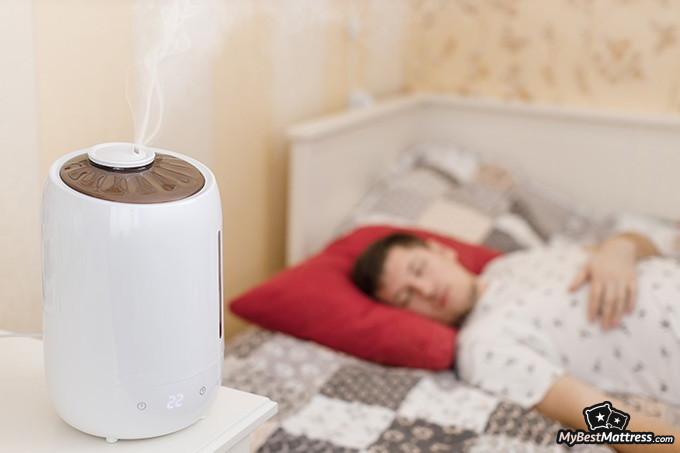
Another simpler way, though less effective, is using flavors to strengthen memory. You’ve probably heard the trick of chewing the same gum during a test and while studying to help you remember things - well, this actually works! Of course, chewing gum in your sleep isn’t exactly the easiest or most convenient way to study, but chewing it right before bed while studying and during an exam can actually help you recall the information better.
If you’re unsure which method to pick - don’t be afraid to try things out! Maybe you have an easier time remembering sounds, so incorporating audio triggers into various subjects can make a world of a difference.
You can even use multiple triggers at the same time, mixing smell and audios in one session, though it would be best to make sure those triggers don’t already associate with other pieces of information.
In any case, whichever method you choose, the most important thing is to make sure it’s the best for you and your goals.
What you can learn in your sleep
Even though our resting brains aren’t as capable as they are while awake, we are far from limited to one form of sleep learning. In fact, utilizing the previously mentioned audio triggers can open us to a whole world of possibilities.

Of course, learning whole languages and complex concepts is still out of our reach, but based on how far we’ve come in the last few decades, this list might be expanding very soon.
- As mentioned previously, the most studied possibility of sleep learning is using trigger associations to recall previously learned details, such as specific sounds, scents, or tastes, that can be used at a later time to bring the memorized information back up. This is especially useful while learning specific words of a language or simple statements, that require memorization more than an in-depth understanding of the subject.
- In addition to better memorizing foreign words, our minds can actually learn new words while we sleep. As seen in the “guga” experiment we’ve discussed previously, it is possible to pick up word associations during sleep. This can be especially useful while learning new languages, as it can make memorizing vocabulary words much easier. Even though the formed memories would be unconscious, our brain can still hold on to the information and make the conscious memories much more prominent in our minds.
- Another unique and unexpected possibility of sleep learning is enhancing your musical skills. Believe it or not, but it’s possible to improve at an instrument overnight. A study conducted in 2012 had participants learn a simple tune on a toy guitar, then later researchers played the melody to half of the group while they slept. The people who had the music played to them in their sleep performed the song significantly better than the group that rested in complete silence. This not only demonstrates a formed connection between sounds and actions (hearing and playing a song) but further proves the brain’s ability to hold on to information better if the memories are triggered in their sleep. So, if you have a big recital coming up, having your piece playing while you sleep might help you master it quicker!
Even though we can learn more during our sleep than many thought we could, it is still nowhere near the levels that were accomplished by Dexter. If you want to utilize your resting brain and learn while you sleep, it is important to remember that sleep learning is essentially helping yourself remember more of what you've learned previously.

So you still need to study for that test, but you can boost your chances of getting an A+ instead of a B+ by revising while you slumber.
Things You Might Have Not Known About Sleep
Sleep has been mystifying researchers for decades, and for good reason. Here are some fun facts about sleep that show exactly how strange this essential process is.
- Staying on the topic of sleep learning, we’ve already established that sleep is crucial for good academic performance. How crucial, you might ask? Well, all-nighters can reduce your capacity for learning and remembering new facts by 40%.
- Men that get only 4-5 hours of sleep every night have lowered testosterone, with levels of someone 10 years their senior, showing the aging effects of sleep deprivation.
- Many people talk in their sleep, but it isn’t uncommon for deaf people to use sign language while they sleep, too.
- We’ve all heard about the side effects of sleep deprivation. However, one of the most unexpected results might be reduced pain tolerance.
- Out of the entire animal kingdom, humans are the only mammals that willingly delay sleep.

- We all know someone who snores in their sleep. But if you regularly sleep next to someone who snores, you are being robbed of nearly 1 hour of sleep every night and woken up at least 20 times!
- Have you ever woken up from a nap that you thought was perfect? Well, according to NASA, the perfect nap only lasts 26 minutes!
- As our world revolves around the world wide web, 24-hour internet access has become our biggest sleep disruptor.
- Three of the most significant world disasters were caused to some extent by sleep deprivation including the 1989 Exxon Valdez oil spill, The Challenger space shuttle disaster, and the Chernobyl nuclear meltdown.
- Do you want to start a dream journal? Then you better keep it close to your bed, as you forget 50% within 5 minutes of waking up and forget 90% within another 5 minutes.
- Almost everything we know about sleep has been discovered in the last 30 years.
Conclusions
For many years sleep learning has only been considered a cartoony branch of pseudoscience. However, within the past 3 decades, we have discovered more than we’ve ever known before about the ability to learn in your sleep.
To answer the question of “does sleep learning work?”, the answer is mostly yes. While we can’t master completely new, complex skills - such as a new language or new subject - while we slumber, we can help our brain retain information it has already learned right before going to bed. Specific triggers like sound and smell can keep our memories fresh for longer, making it a lot easier to learn something new in the long run.
If you decide to try sleep learning, make sure you have everything you might need for a good night’s sleep, and I suggest starting with investing in a high-quality mattress, as it will help you easily drift through the sleep cycle and get the most of your learning while sleeping.
Scientific References
1. Berger RJ, Phillips NH. 'Energy conservation and sleep'
2. Oswald I. 'Sleep as restorative process: human clues'
3. Inoué S, Honda K, Komoda Y 'Sleep as neuronal detoxification and restitution'
4. Barrett TR, Ekstrand BRJ 'Effect of sleep on memory. 3. Controlling for time-of-day effects'
Leave your honest feedback
Leave your genuine opinion & help thousands of people to choose the best mattress. All feedback, either positive or negative, are accepted as long as they’re honest. We do not publish biased feedback or spam. So if you want to share your experience, opinion or give advice - the scene is yours!








